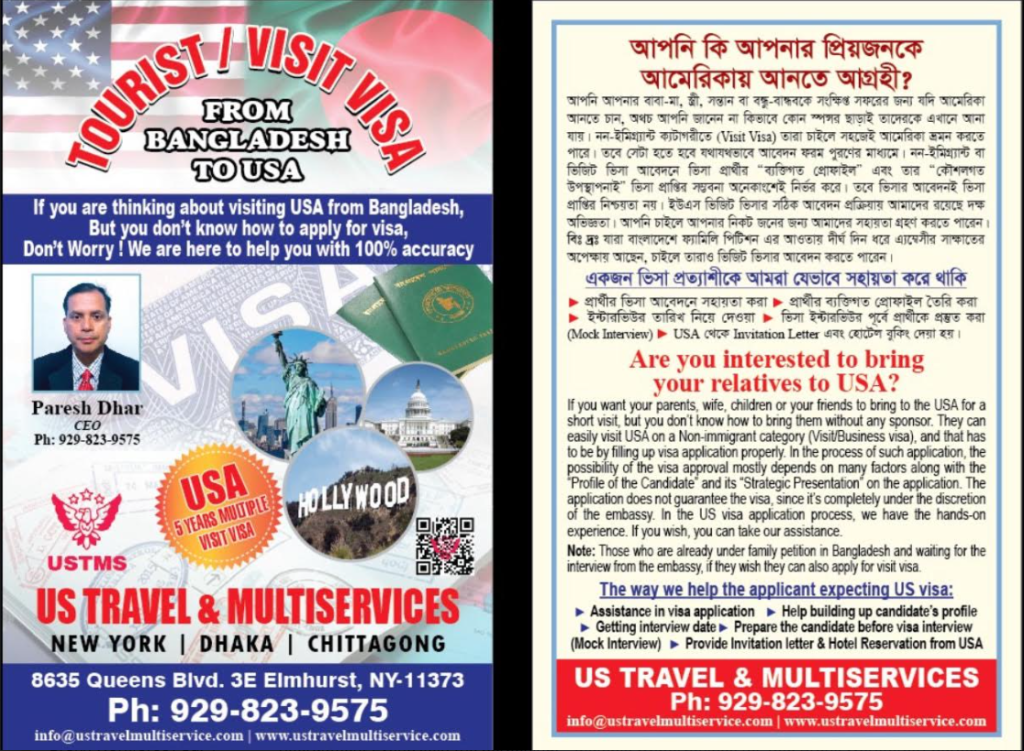Services
Travel Agent
Hotel & Car Booking
Tour Packages
Visa application
assistance
-:Specialized Services:-
Non-Immigrant Visa
- Non-immigrant visas to the U.S. are designed for individuals who wish to enter the country temporarily for specific purposes such as tourism, business, or education.
- Each type of non-immigrant visa has its own set of requirements and conditions, tailored to the purpose of the visit.
- Common non-immigrant visa categories include B-1/B-2 for business and tourism, F-1 for students, and H-1B for specialty occupation workers.
- Applicants must demonstrate that they intend to return to their home country after their temporary stay in the U.S. to qualify for a non-immigrant visa.
- The application process typically involves submitting detailed documentation, attending an interview at a U.S. embassy or consulate, and paying a visa fee.
- Non-immigrant visa holders must comply with the terms of their visa, including the duration of stay and the activities permitted while in the U.S.
- The validity of a non-immigrant visa varies depending on the visa type and the individual’s specific circumstances.
- Visa applicants should be prepared to provide evidence of financial support and ties to their home country to establish their intent to return.
- Overstaying a non-immigrant visa can lead to serious consequences, including deportation and future visa denials.
- For those seeking to extend their stay or change their status, it is essential to apply for the appropriate visa extension or change of status before the current visa expires.
Student Visa
- Student visas, specifically the F-1 visa, are designed for international students who wish to study full-time at an accredited U.S. educational institution.
- To apply for an F-1 student visa, applicants must first obtain an acceptance letter from a U.S. school that is certified by the Student and Exchange Visitor Program (SEVP).
- Applicants need to demonstrate sufficient financial resources to cover tuition fees, living expenses, and other costs during their stay in the U.S.
- The application process includes filling out the DS-160 form, paying the SEVIS fee, and scheduling an interview at a U.S. embassy or consulate.
- During the visa interview, students must provide evidence of their intent to return to their home country after completing their studies.
- Academic transcripts, standardized test scores, and proof of English language proficiency are often required to gain admission to a U.S. school and obtain a student visa.
- Students must maintain a full-time course load and adhere to the terms of their visa to stay in compliance with U.S. immigration regulations.
- The F-1 visa allows for limited on-campus employment and, under certain conditions, off-campus work with prior authorization.
- It is important for students to apply for their visa well in advance of their intended start date to account for processing times and potential delays.
- Violating the terms of an F-1 visa, such as by failing to maintain full-time enrollment, can result in visa termination and potential deportation.
What we do for you !!
